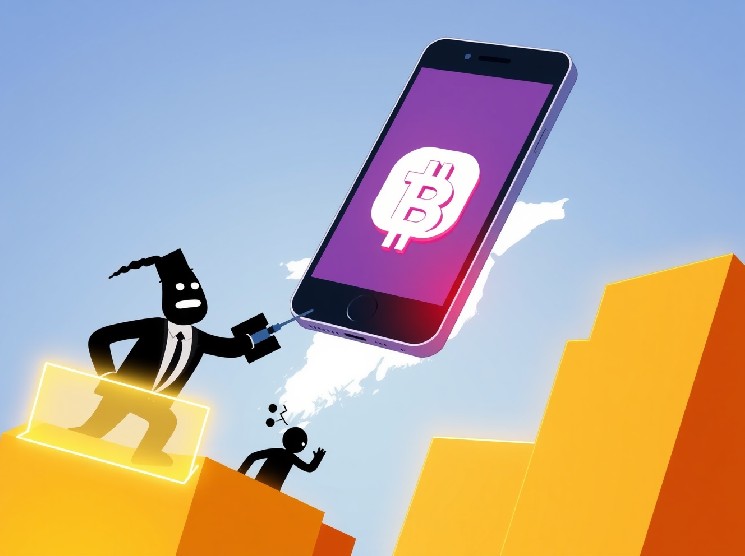In a surprising development that has shaken the crypto world, BTCC has reportedly resumed illegal operations in South Korea through sophisticated regulatory circumvention tactics. The China-based exchange appears to have found a way to circumvent the country’s strict financial regulations, raising serious concerns about investor protection and market integrity.
How did BTCC circumvent Korean regulations?
According to a recent report in Decenter, BTCC’s illegal activities in South Korea include sophisticated techniques to circumvent the ban. The exchange is said to have opened spoofed domestic bank accounts to accept Korean won deposits from domestic users. This represents a significant escalation in the ongoing battle between regulators and foreign unregistered cryptocurrency exchanges operating in the Korean market.
According to financial industry sources, the exchange currently operates through a new application called BTCC Lite, which is available on both Google Play and the Apple App Store. The move comes after South Korean financial authorities removed BTCC’s official app and classified BTCC as an unregistered overseas exchange. The company’s insistence on maintaining illegal BTCC operations in South Korea illustrates the challenges regulators face when controlling cross-border cryptocurrency activity.
What is the difference between BTCC Lite and banned apps?
The new BTCC Lite application represents a strategic change in the way the exchange conducts its illegal operations in South Korea. The main differences are:
- rebranded identity Different name and appearance
- Individual banking arrangements through a fake account
- Continued acceptance Korean won deposit
- Available in major app stores even though it was previously removed
This approach allows BTCC to continue its illegal activities in South Korea while technically complying with app store policies. However, the basic activities remain the same. This means facilitating crypto transactions for South Korean users without proper regulatory approval.
Why should investors be concerned about this illegal activity?
The continued illegal operation of BTCC in South Korea poses multiple risks to domestic investors. Users trading through unregistered platforms do not have the protections provided by compliant exchanges. Furthermore, these activities could undermine the soundness of South Korea’s financial system, leading to:
- loss of funds without legal recourse
- exposed to money laundering risks
- Potential legal implications for users
- Market manipulation concerns
South Korean authorities are increasing their vigilance over virtual currency regulations, and the continued illegal operation of BTCC in South Korea is of particular concern. The situation highlights the ongoing cat-and-mouse game between regulators and determined offshore exchanges.
What does this mean for South Korean crypto regulation?
BTCC’s ability to resume illegal operations in South Korea despite past law enforcement raises questions about the effectiveness of current regulatory approaches. This incident shows that simply removing an app from its official store may not be enough to prevent determined exchanges from accessing the South Korean market.
Financial authorities are currently faced with the challenge of developing more sophisticated detection and prevention methods. The ongoing illegal BTCC operation in South Korea is a wake-up call to regulators around the world about the suitability of unregistered crypto exchanges in circumventing national borders and regulatory barriers.
Conclusion: The continuing battle over crypto compliance
Reports of the resumption of illegal BTCC operations in South Korea through the BTCC Lite app pose a serious challenge to financial regulators. This case highlights the persistent nature of regulatory arbitrage in the crypto space and the need for a more comprehensive approach to cross-border exchange oversight. As the situation evolves, both investors and regulators need to remain vigilant about the risks posed by unregistered platforms operating in regulated markets.
FAQ
What is BTCC and why is it operating illegally in South Korea?
BTCC is a virtual currency exchange with roots in China and is classified as an unregistered overseas exchange by South Korean financial authorities. It is operating illegally because it does not have the necessary regulatory approvals to serve customers in South Korea.
How does BTCC avoid a ban in South Korea?
The exchange continues to accept Korean won deposits from domestic users using spoofed domestic bank accounts and a rebranded application called “BTCC Lite” available on major app stores.
What risks do investors face when using an unregistered exchange?
Without legal protection, investors risk losing their funds, being exposed to money laundering activities, potential legal repercussions, and lack of recourse in the event of an exchange failure or hack.
Are South Korean authorities taking action against BTCC?
Yes, financial authorities have previously removed the official app of BTCC and classified it as illegal. They continue to monitor and take action against unregistered exchanges operating in the country.
Can users get into legal trouble by using BTCC Lite?
Although the main enforcement is focused on exchanges, users may face legal consequences for knowingly using unregistered platforms, especially for large trades.
What should investors who have used BTCC in South Korea do?
Investors should immediately stop using unregistered platforms, withdraw their remaining funds, and consider moving to a properly registered exchange that complies with Korean regulations.
Did you find this article that sheds light on the regulatory challenges of cryptocurrencies? Spread awareness by sharing this important information on your social media platforms. Your shares will help protect other investors from potential risks associated with unregistered exchanges.
To learn more about the latest cryptocurrency regulatory trends, check out our article on key trends shaping cryptocurrency compliance and institutional adoption.
Disclaimer: The information provided does not constitute trading advice. Bitcoinworld.co.in takes no responsibility for investments made based on the information provided on this page. We strongly recommend independent research and consultation with qualified professionals before making any investment decisions.










